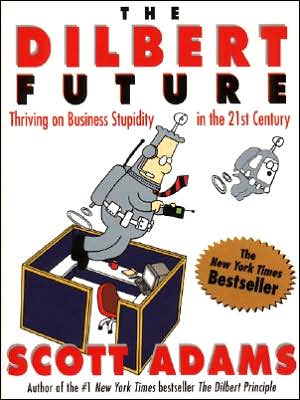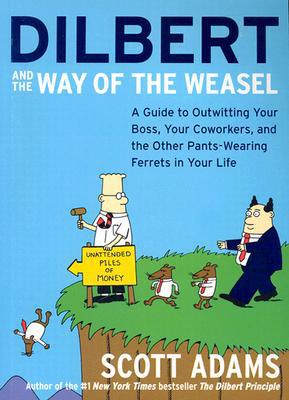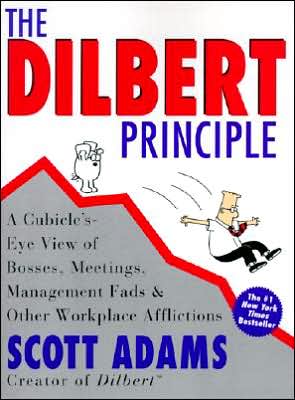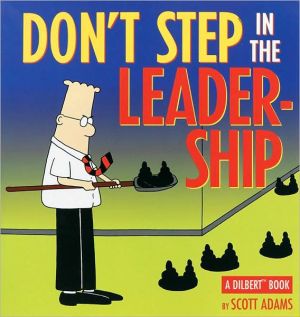Dilbert Future: Thriving on Business Stupidity in the 21st Century
Step aside, Bill Gates! Here comes today's real technology guru and his totally original, laugh-out-loud New York Times bestseller that looks at the approaching new millennium and boldly predicts: more stupidity ahead.\ In The Dilbert Principle and Dogbert's Top Secret Management Handbook, Scott Adams skewered the absurdities of the corporate world. Now he takes the next logical step, turning his keen analytical focus on how human greed, stupidity and horniness will shape the future....
Search in google:
From Dilbert's shrinking cubicle and to Dogbert's advice for getting ahead to oddball consultants from Elbonia, Adams revisits the development of all that is Dilbert. Publishers Weekly Countless people look forward to the morning paper because it contains a Dilbert comic strip, a fine way to start the day on a cheerful note. But recently, at least as evidenced by this book, Adams's humor has developed into something snide and derogatory. He sees most people as "induhviduals." Perhaps he is boredjust as we all will become, he declares here, when everything is shared, via the Internet and new developments in video technology. Reading his book piecemeal, one catches more of the facetious humor. Among the 65 predictions here, Adams echoes many scholars in forecasting a work force of freelance experts doing contract work. He hits the target again when he dubs telephone marketing "confusopoly" because it serves only to befuddle the customer about price, since all companies provide essentially the same service. But one wonders why he bothers tackling certain areas, as in Prediction 59: "In the future, there will be drive-through pet-care facilities." Much of the work reiterates George W.S. Trow's conclusion that our civilization is growing increasingly trivial. Therefore, Adams's inclusion of a recommendation for making dreams come truewriting down one's wishes 15 times each dayis bizarre, suggestive of Cou's 1920s maxim that "Every day, in every way, I'm getting better and better." (June)
\ Publishers Weekly - Publisher's Weekly\ Countless people look forward to the morning paper because it contains a Dilbert comic strip, a fine way to start the day on a cheerful note. But recently, at least as evidenced by this book, Adams's humor has developed into something snide and derogatory. He sees most people as "induhviduals." Perhaps he is boredjust as we all will become, he declares here, when everything is shared, via the Internet and new developments in video technology. Reading his book piecemeal, one catches more of the facetious humor. Among the 65 predictions here, Adams echoes many scholars in forecasting a work force of freelance experts doing contract work. He hits the target again when he dubs telephone marketing "confusopoly" because it serves only to befuddle the customer about price, since all companies provide essentially the same service. But one wonders why he bothers tackling certain areas, as in Prediction 59: "In the future, there will be drive-through pet-care facilities." Much of the work reiterates George W.S. Trow's conclusion that our civilization is growing increasingly trivial. Therefore, Adams's inclusion of a recommendation for making dreams come truewriting down one's wishes 15 times each dayis bizarre, suggestive of Cou's 1920s maxim that "Every day, in every way, I'm getting better and better." (June)\ \








